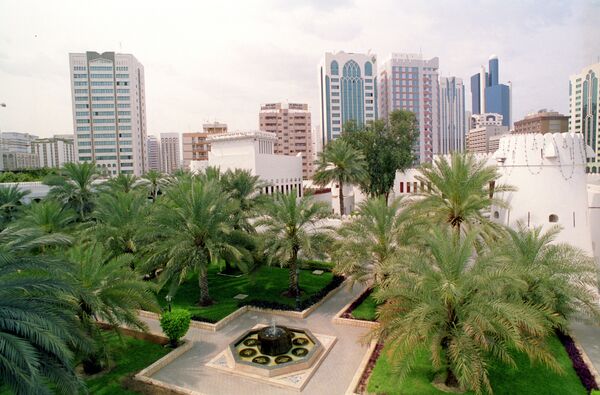MOSCOW, August 5 (RIA Novosti) - The Environment Agency-Abu Dhabi (EAD) revealed in its 2013 annual report enhancements to its expertise on waste management, air quality, bio-diversity and climate change toward its goal of establishing sustainable development in the United Arab Emirates.
“Successfully achieving our goals in environmental protection will reflect on our environment and our economy, which will in turn benefit our society by minimizing environmental risks, enhancing the quality of life, conserving our natural resources for future generations and creating new job opportunities,” Sheikh Hamdan bin Zayed, the emir’s representative in the western region of Abu Dhabi and EAD Chairman, said at the release of the report.
EAD’s objectives are based on priorities set by the Abu Dhabi Environment Vision 2030. The vision comprises five priorities: minimizing the impact of climate change; ensuring clean air and limiting noise pollution; improving management and conservation of water resources; preserving habitats, biodiversity and cultural heritage; and enhancing value creation through better material flows and waste management.
Accomplishments listed in the annual report include the acquisition of 440 groundwater wells and 637 facility inspections ensuring compliance with permit conditions, which has been an issue in the past.
“On the pragmatic segment, the program seeks to implement measures for capping emissions of air pollutants, limiting depletion of natural resources and protecting sensitive habitats without impacting upon Economic 2030 objectives, while the other side of the spectrum involves in exporting green knowledge services, investing in natural capital and promoting voluntary green standards. At the same time, the program suggests that increasing electricity and water efficiency, improving fuel efficiency in vehicles, as well as using renewable energy and eliminating waste will contribute significantly in achieving the main objectives.” Dr. Richard Perry, the executive director of Environmental Information, Science and Outreach Sector at the Environment Agency -Abu Dhabi (EAD), said of Environment Vision 2030.
EAD, with the support of the Abu Dhabi government, strives to create an effective balance between its economic, environmental and social agendas. Environmental Vision 2030 was developed by stakeholders, with the common goal of protecting the environment and economic and social growth.
Although Environmental Vision 2030 is still a work in progress, the 2013 annual report reveals progress and a promising future.


